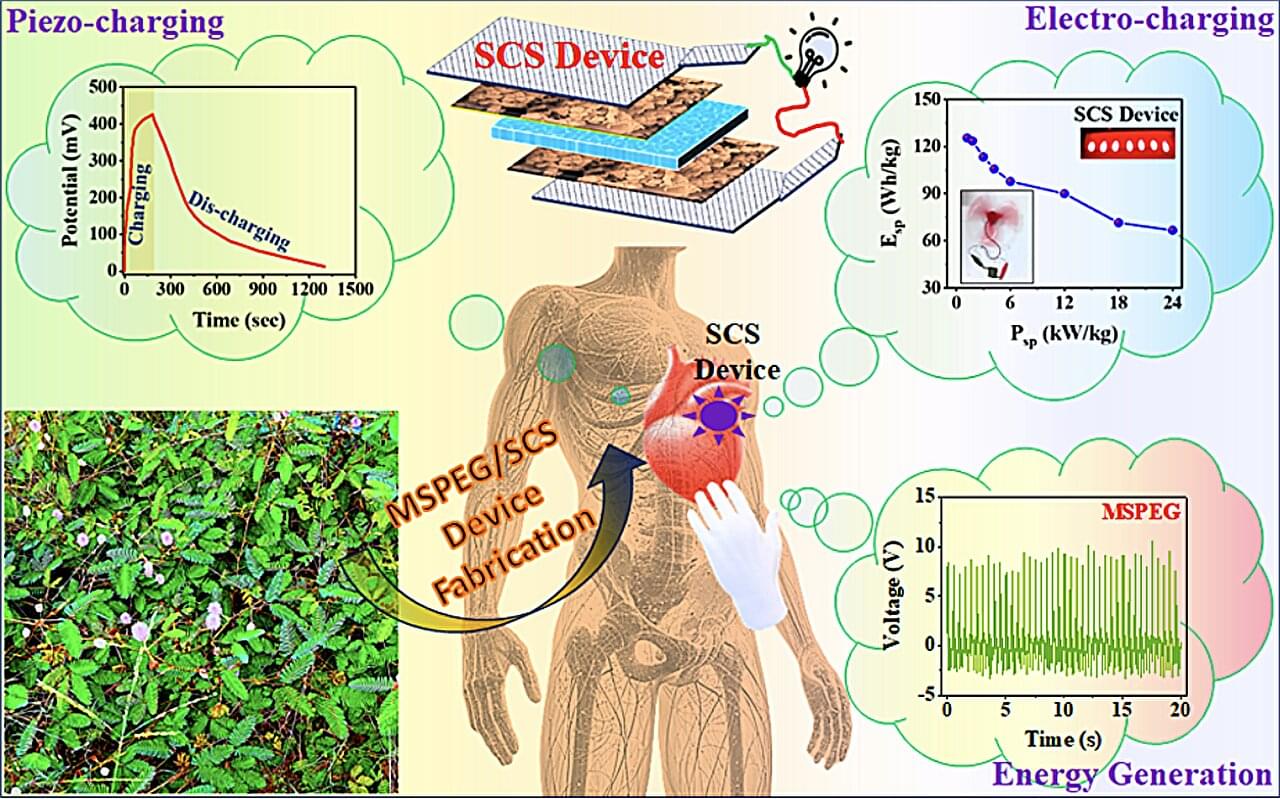Most energy generators currently employed within the electronics industry are based on inorganic piezoelectric materials that are not bio-compatible and contribute to the pollution of the environment on Earth. In recent years, some electronics researchers and chemical engineers have thus been trying to develop alternative devices that can generate electricity for medical implants, wearable electronics, robots and other electronics harnessing organic materials that are safe, bio-compatible and non-toxic.
Researchers at the Materials Science Centre, Indian Institute of Technology Kharagpur recently introduced a new device based on seeds from the mimosa pudica plant, which can serve both as a bio-piezoelectric nanogenerator and a self-chargeable supercapacitor. Their proposed device, outlined in a paper published in the Chemical Engineering Journal, was found to achieve remarkable efficiencies, while also having a lesser adverse impact on the environment.
“This study was motivated by the need for biocompatible, self-sustaining energy systems to power implantable medical devices (e.g., pacemakers, neurostimulators) and wearable electronics,” Prof. Dr. Bhanu Bhusan Khatua, senior author of the paper, told Tech Xplore.
